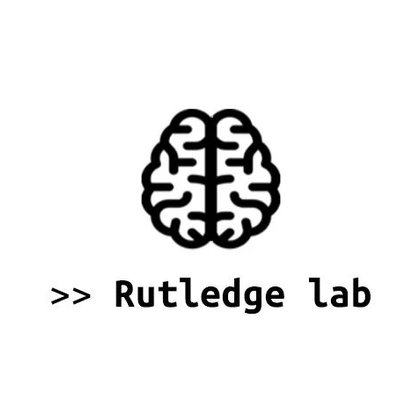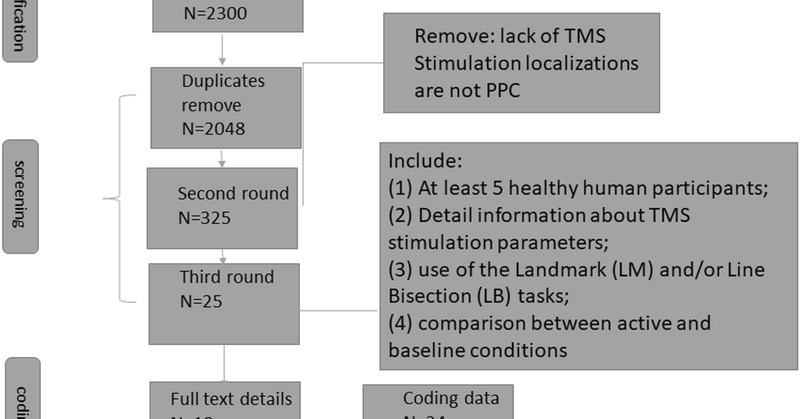
Zhihao Wang
@ZhihaoW20376062
Followers
74
Following
603
Media
5
Statuses
32
post-doc in cognitive neuroscience
Joined November 2020
Delighted to share our recent work with postdoc @ZhihaoW20376062 and collaborators ( @psynantian, x-less Fengmei Lu, Yue Yu, Xiao Cai, Zongling He, Yuejia Luo): Mood computational mechanisms of increased risk taking in suicidal patients.
1
7
17
🎉New positions!🎉 Postdoc & research technician openings in our lab @yale Computational psychiatry / neuroeconomics research. Technician a great stepping stone to grad school. Work w/brain scans & big smartphone data: https://t.co/AbNHDqphkq More:
rutledgelab.org
Now hiring a postdoc and a research technician with an interest in neuroeconomics or computational psychiatry.
3
60
114
Our meta-analyses work about inhibitory TMS-induced effects on line bisection/landmark task https://t.co/9d8Ojxr5jW and on visual detection task
link.springer.com
Neuropsychology Review - Hemispheric asymmetry is a fundamental principle in the functional architecture of the brain. It plays an important role in attention research where right hemisphere...
0
1
3
New publication in Nature Mental Health on intrinsic rewards with @affectivebrain and @IndiaPinhorn ! https://t.co/GEUfxZGYkB In brief: we show that sensitivity to intrinsic rewards is partially domain general and is positively correlated with mental health. Thread below!
nature.com
Nature Mental Health - In this cross-sectional study, Blain and colleagues show that sensitivity to diverse visual, cognitive and social, putatively intrinsic rewarding stimuli is partly domain...
4
35
113
We also replicated our results in the punishment context. In addition, using happy, but not fearful, expression, did not find such a effect, ruling out the potential impact of attention-grabbing on adaptation to volatility.
0
0
0
Interestingly, this bias was stronger with higher levels of alexithymia (The topic of my PhD thesis).
0
0
0
Dynamic causal modeling identified that the driving effect was located in the TPJ and was associated with dACC activation, suggesting that the suppression of fear on adaptive behaviors occurs at the early stage of bottom-up processing.
0
0
0
These neuroimaging results suggest the distributed neural substrates underlying computations of fear-biased adaptation to volatility learning, including integration systems, learning systems, and memory systems
0
0
0
Across behavioral and fMRI experiments, computational modeling consistently revealed a higher learning rate for the environment with frequent versus infrequent reversals following neutral cues. In contrast, this flexible adjustment was absent in the environment with fearful cues
0
0
0
To test how fear influences adaptation to volatility during dynamic environments, we developed a cue-biased adaptation learning task, where we simultaneously manipulated emotional valence and environmental volatility.
6
0
0
We reveal that inflexible adaptation to volatility is suppressed by fear at the early stage of bottom-up processing of fearful information, providing a neuro-computational account of how fear interferes with adaptative behavior during dynamic environments.
1
0
1
Happy to share my paper in PLOS Biology, which was accepted at the beginning of this month (Too tired this month).
This study shows that adaptation to rapidly changing environments is suppressed by #fear at the early stage of bottom-up processing of fearful information, explaining how fear interferes with #AdaptiveBehavior in response to dynamic situations #PLOSBiology
https://t.co/1U4eHFFRsr
1
2
9
Extremely proud to be part of this! @OpenSciChina #OpenScience ps, this is the longest tweet thread I've put in! Have a look!
Our COSN @OpenSciChina position paper is now online at #AMPPS @PsychScience! We celebrate achievements & learn from challenges, so it is also a gift to the global #OpenScience! Ever wondered how to build an OS community from scratch? 🧑💻Paper: https://t.co/kZHQZiTRLv 🧵👇! (1/n
0
5
20
Multiple positions in the new MRI center at HKBU: https://t.co/zKCbqD0od1 Feel free to contact me if you are interested.
0
2
11
🎉New positions!🎉 Postdoc and research technician openings in our lab @yale for neuroeconomics or comp psychiatry. Technician position a great stepping stone to grad school. Work w/big data from our smartphone apps https://t.co/9wChqbmyY0 More info:
rutledgelab.org
Now hiring a postdoc and a research technician with an interest in neuroeconomics or computational psychiatry.
0
55
63
Happy to obtain my PhD degree. Many thanks to my supervisors and colleagues!
Congratulations dr. Zhihao Wang on obtaining your PhD 'cum laude'! Zhihao's studied social emotion processing in people who experience difficulties in identifying and describing feelings (alexithymia). Thesis link: https://t.co/mhnnT0Svsk
@univgroningen @researchumcg
1
0
13
New paper out in SCAN! Social-Specific Impairment of Negative Emotion Perception in Alexithymia
academic.oup.com
Abstract. Alexithymia has been characterized as an impaired ability of emotion processing and regulation. The definition of alexithymia does not include a
0
0
4
We built a predictive model for individual anxiety using resting fmri data. Importantly, the model is generalizable. Using computational 'lesion' method, we found that the limbic system and prefrontal cortex are of importance for anxiety prediction.
0
0
0
First resting-state paper! Connectome-Based Predictive Modeling of Individual Anxiety
academic.oup.com
Abstract. Anxiety-related illnesses are highly prevalent in human society. Being able to identify neurobiological markers signaling high trait anxiety coul
1
0
3











